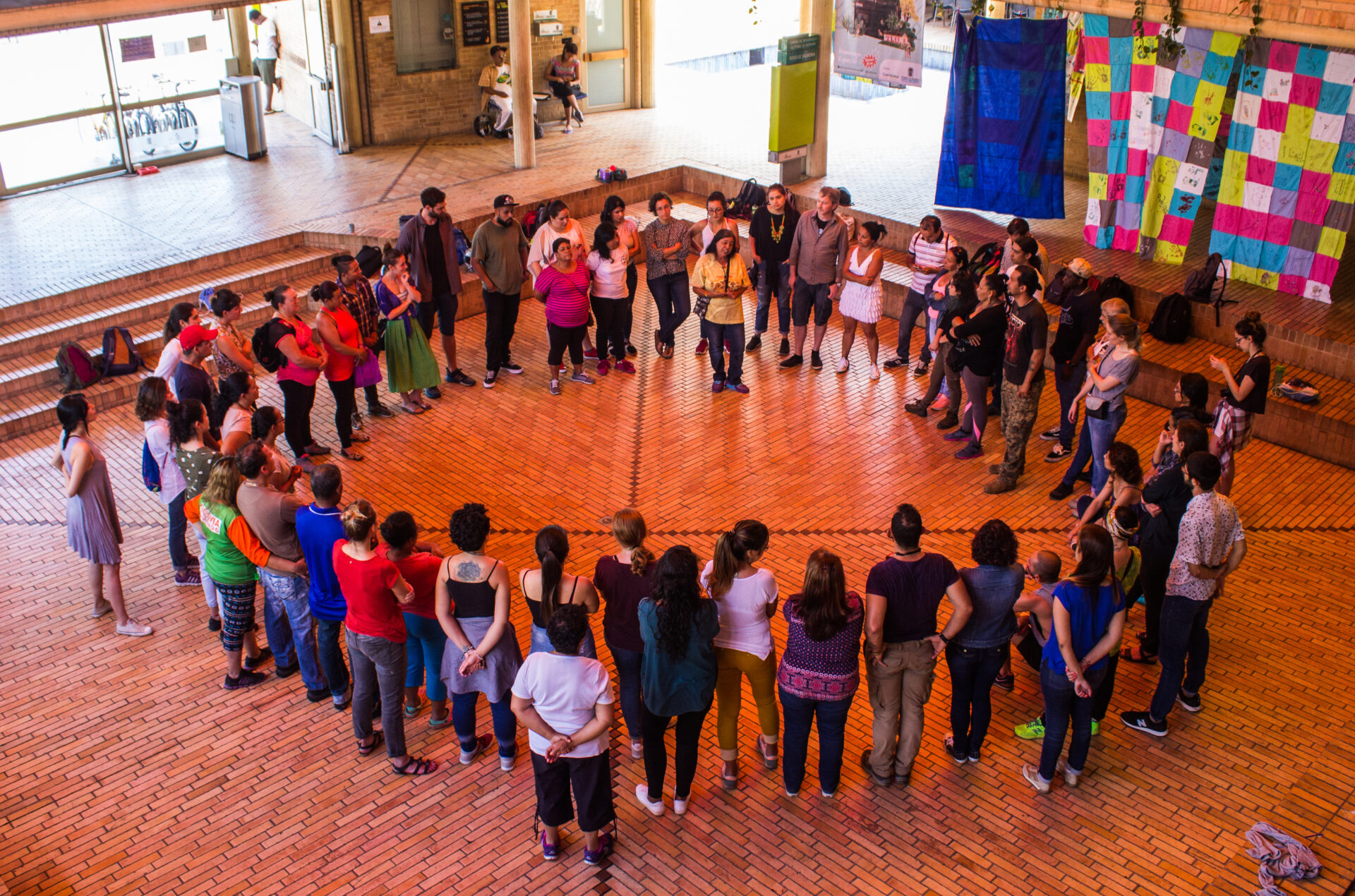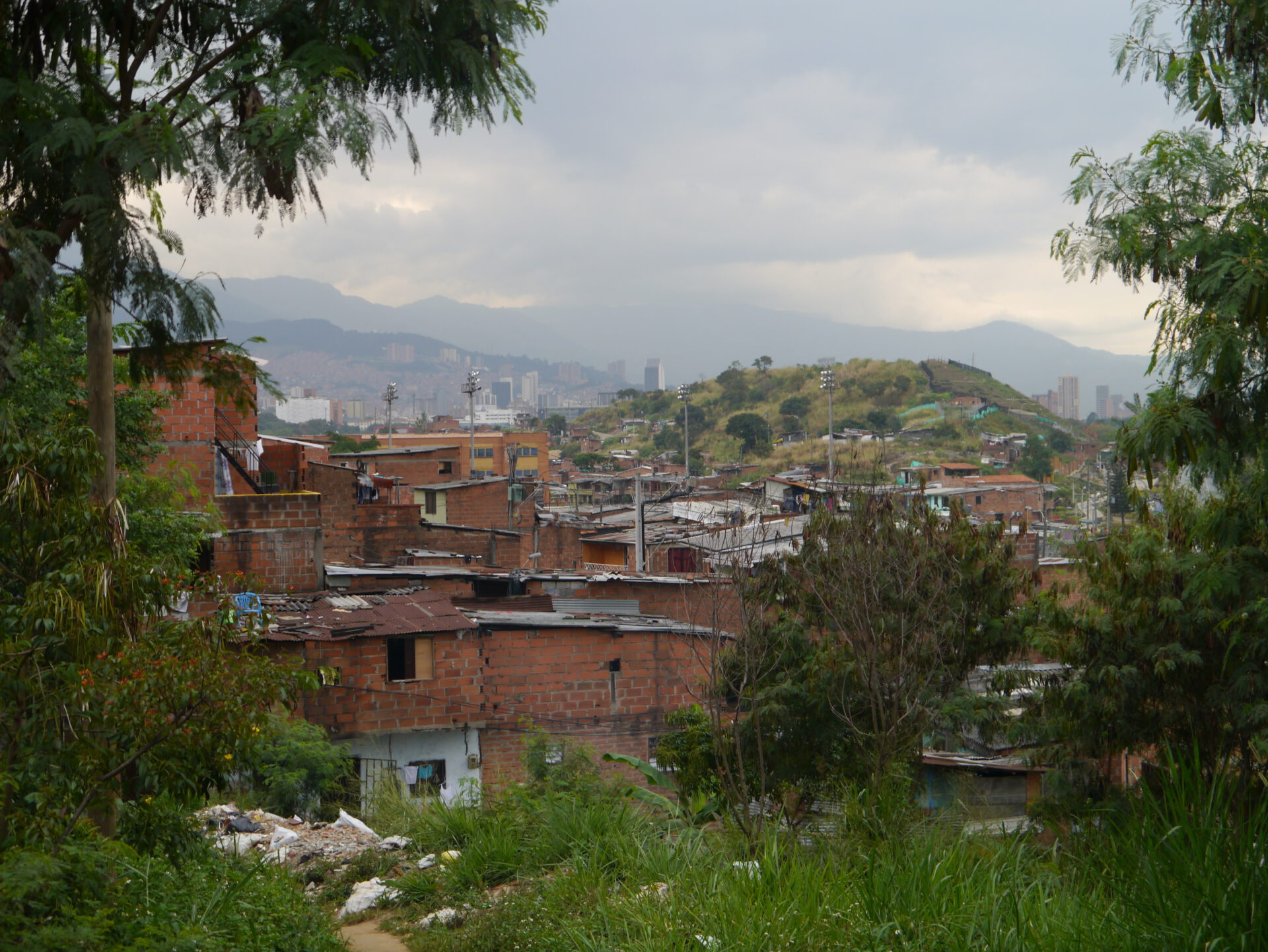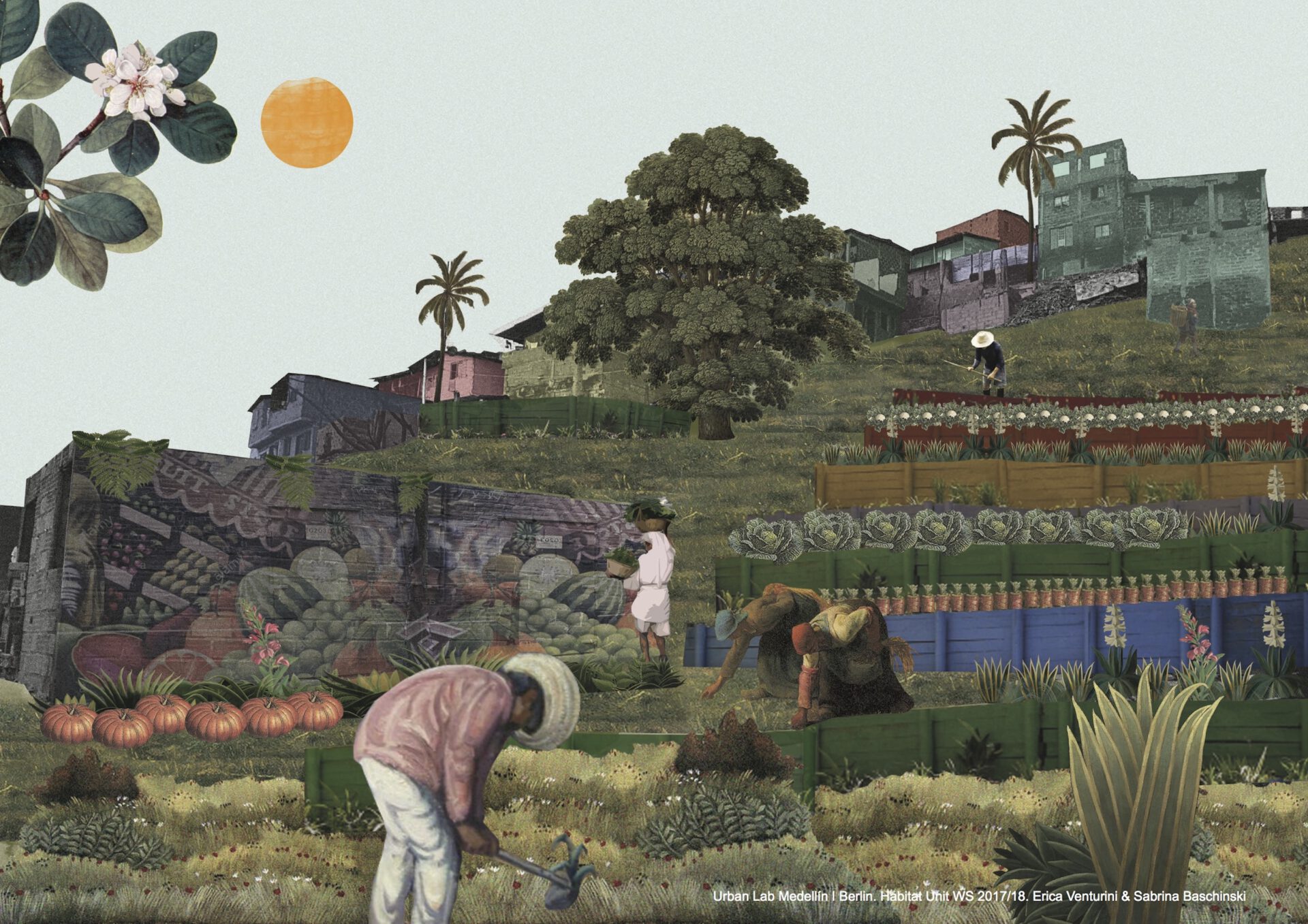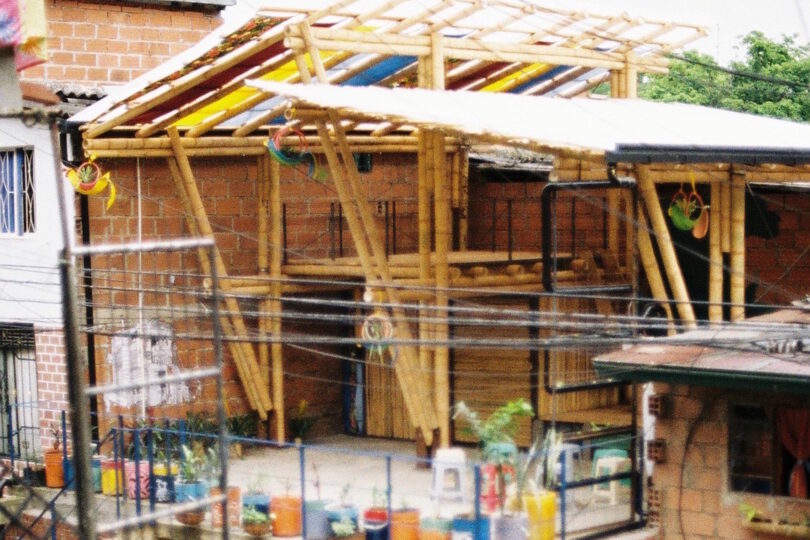In the SEMBRANDO VIDA project a trans-disciplinery team from Columbia and Germany consisting of academics, students, craftsmen, organisations and residents, are seeking to develop an ecologically and socially sustainable transformation strategy for the Morro, the former landfill of Medellín around which the informal settlement of Moravia grew.
Initially internally displaced people from all over Colombia settled on the Morro and made a living by recycling the waste. In the early years of the millennium, a time of urban & social upheaval in Medellín, the 15.000 inhabitants of the Morro were relocated and the site as developed into a public park. Sembrando Vida envisions the next stage of transformation by bringing life and work back to the Morro. This time as a symbol for change towards a healthy, safe, secure and inclusive living environment.

As a DesignBuild project one of the first stages will be the realization of a bamboo-structured pavilion, conceived as a productive space for environmental awareness and education on themes surrounding sustainable economies in the production of foodstuffs. Furthermore, the space should serve as a place for encounter and cultural exchange, where innovative green ideas can be tested and where the community and visitors from around the globe can meet. Following the principles of co-production, in March 2018 the Spring School RETHINKING URBAN INFORMALITYbrought together the different actors together for an open workshop that served to discuss and establish the concept and to create further visions. Following the design phase in Summer 2018 at TU Berlin, the building phase will take place over the course of the second Summer School of the series in September 2018.
The SEMBRANDO VIDA project was initiated as part of the Urban Lab Medellín I Berlin, a Think & Do Tank exploring the potentials of co-production through negotiation processes, inter-cultural and trans-disciplinery knowledge exchange and collective action. It is based on the strong belief that a profound understanding of self-provisioned urban dwellings and the inclusion of local practices into planning processes are necessary in order to tackle global challenges.


Gefördert vom DAAD aus Mitteln des Bundesministeriums für Bildung und Forschung (BMBF).


